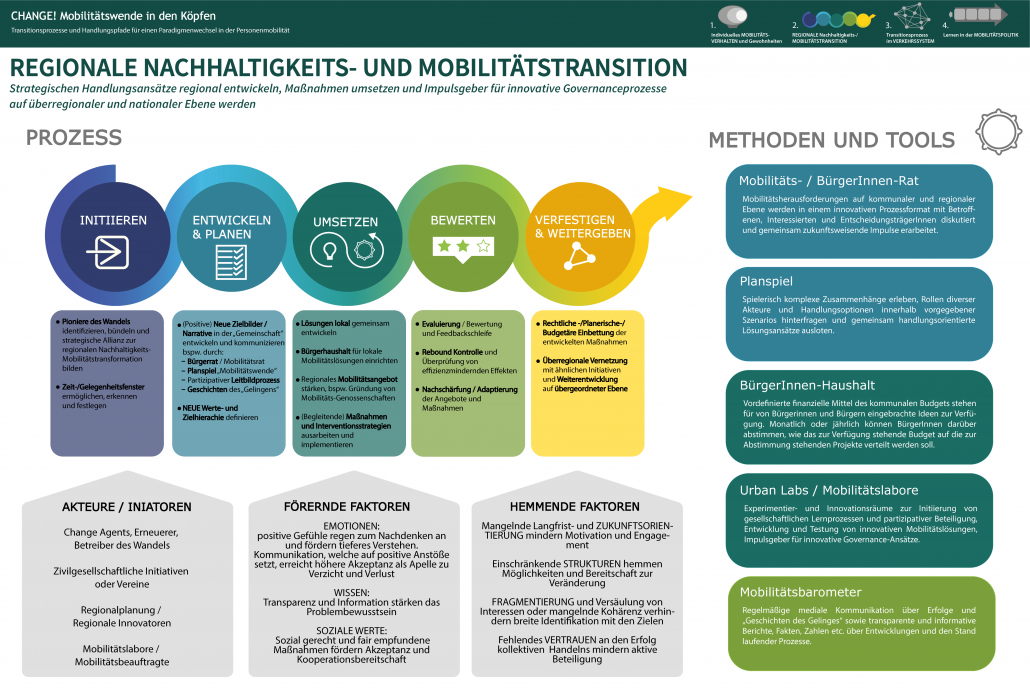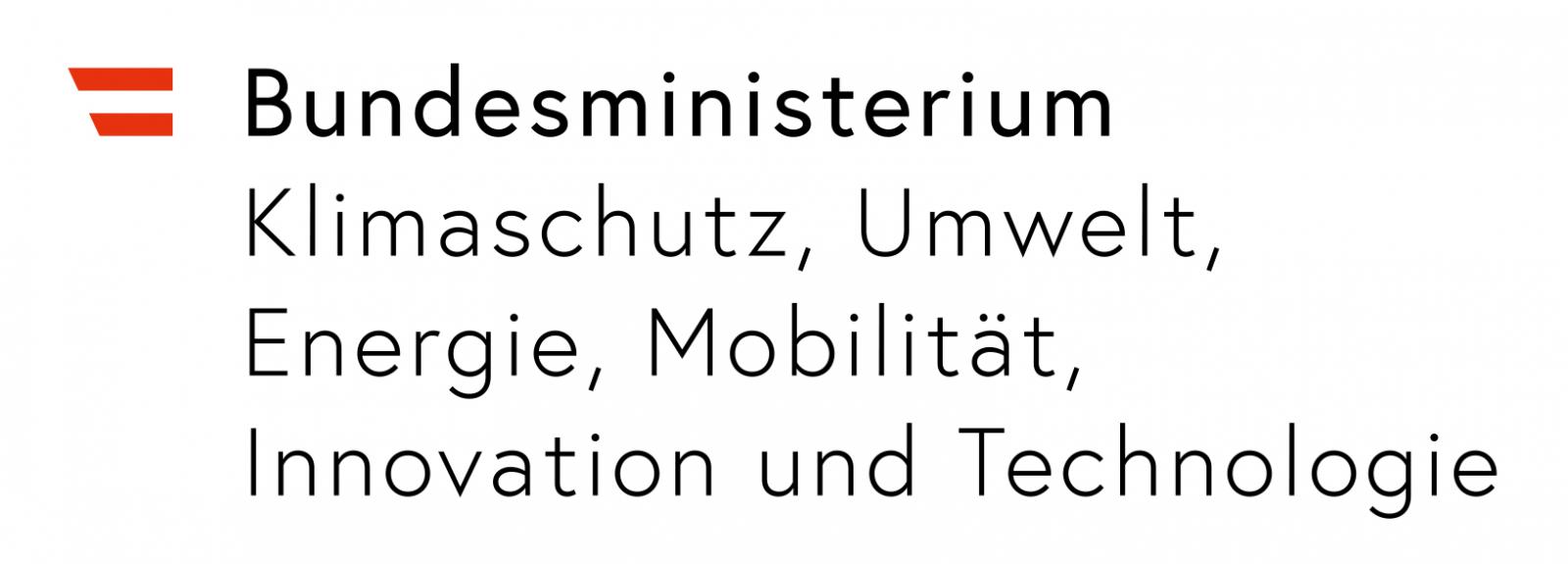
Strategies for sustainable mobility involve numerous actors and affect various levels of communication and negotiation, from politics, administration, planning to the user level.
A project-accompanying stakeholder process supports the development of appropriate steering and steering competencies within the actor network as well as the development of practical and accepted implementation concepts that are suitable for achieving critical masses and tipping points for a personal mobility turnaround.
Regional Sustainability and Mobility Transition
Mobility transition pursues the goal of reducing greenhouse gas emissions in the transport sector. At the same time, it is also about implementing a social and inclusive mobility offer that relies on cooperation and principles of communal economic activity (joint use of infrastructure, sharing, etc.), with the aim of taking an important step towards more sufficient mobility behavior.
Results from an intensive expert and stakeholder dialogue as part of CHANGE! have shown that actors at the local and regional level are trying to implement innovative approaches to a mobility transition, but that these niche solutions fail to find the appropriate distribution paths to achieve broad impact. Framework conditions for “new offers” would have to be defined, since different standards and missing norms inhibit the application and thus the integration of different offers and services. In addition, in many municipalities there is a lack of overarching strategies and specialist know-how to initiate the transition processes of a mobility transition in a targeted manner.
While a dense supply of public transport is often guaranteed in urban areas, rural areas face completely different prerequisites in order to implement a mobility transition in a practical way and with a high level of participation and acceptance.
A structural change in the direction of a new sustainable development path does not take place without targeted interventions. The initiation and design of the transformation processes in the direction of sustainable mobility practices based on regional levels is assigned a central role. With the involvement of the population and relevant actors in the decision-making, planning and implementation process, new regional mobility solutions can be developed, implemented and further developed across the region. The success is based on the direct experience of differentiated and decisive life situations and framework conditions, as well as the development of locally adapted and everyday solution concepts. The concept of regional mobility transition relies on innovative pioneers of change at the local level, who in turn can set the impetus for a regional sustainability mobility transformation in a strategic alliance with politics, business, education, planning and civil society.



